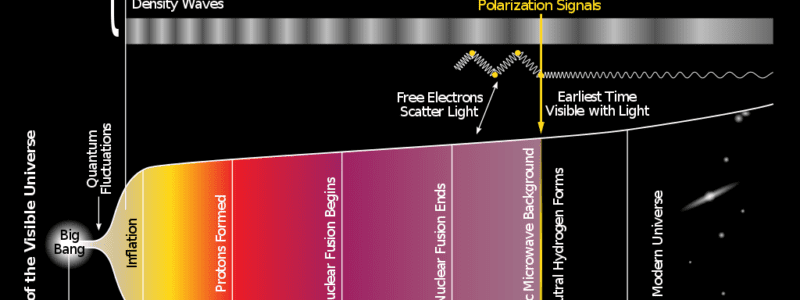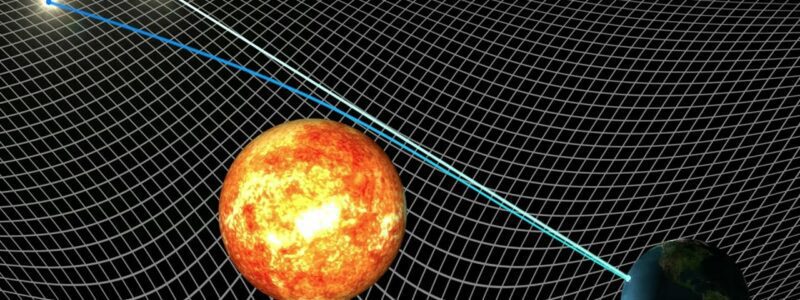Influence of Immanuel Kant
The influence of Immanuel Kant is difficult to overstate. His philosophical writing coupled with the cosmological understanding of the 18th century gave permission for scientists of the time to deny the existence of God.
Immanuel Kant was one of the most influential philosophers of his time. He was brought up by very strict and religious parents and remained at least nominally a Christian throughout his life. His philosophical approach represented a struggle between the religious belief of his youth and the scientific advances of his time. He famously believed in immortality but reconciled this belief with the notion that limitations inherent in being human meant humanity could never really understand God and how he operated.
Kant’s philosophical views touch on all manner of reality and human experience and attempt to explain through reasoning far more than was possible to be explained scientifically during the 18th century. His ideas remained very influential through academia in the western world, similar perhaps to the acceptance of Aristotelian philosophy until the Renaissance. His assertion that the Universe must be infinite in age and size held until the latter part of the twentieth century with the advent of the Big Bang theory.
Kant’s Cosmology

Immanuel Kant
Kant is sometimes considered the father of modern cosmology because he was able to develop a correct understanding of several aspects of cosmology from the meager evidence available during his lifetime. In 1755, Kant published his Universal Natural History and Theory of the Heavens inferred that because some stars are found to “move,” stars revolve in elliptical orbits similar to the planets. He based this belief on the works of two scientists of his era, James Bradley and de la Hire. While these observational astronomers were correct that stars do move in the heavens relative to other stars, their results were not substantiated by their observations.
Some of the best telescopes of his day were able to detect nebulous spots among the stars which Kant presumed were “island universes” like our own. He also suggested that some nebula could condense into smaller ones through which stars would gradually condense. He also suggested there might be “kernels” forming in the nebular disk which could gradually condense into planets over an immense period of time.
Kant’s ideas became so influential that virtually all astronomers adopted Kant’s reasoning for the evolution of the universe. Kant recognized that by proposing a purely naturalistic origin of the universe and planets he was relegating any concept of God to minimal if any significance. He even started work on a purely naturalistic origin of life but eventually abandoned this attempt due to the lack of a clear understanding of life processes at this time.
Kant’s Theology
Kant continued his assault upon traditional Christian theology by discarding all the previous proofs for the existence of God, including the philosophical proofs of Augustine and Aquinas using reasoning that seemed plausible to his scientific peers. Kant would come to define “God” as the moral disposition within man that is the “basis and interpreter of all religion.” The moral disposition has nothing to do with God-rendered standards of right and wrong or of good and evil but rather depended upon what man believed good for his own survival.
Kant believed the universe was infinitely old and infinitely large thereby allowing the possibility of an infinite number of random events. With an infinite number of occurrences, any kind of final product would become possible. The infinitude of time and chance laid the foundations for Darwinism and the chance creation of all life on earth through natural selection.
The Influence of Immanuel Kant on Science
Kant was trained as a philosopher and not a scientist. However, his logical ideas resonated with the scientific establishment of his time and dominated astronomical thinking until the mid-twentieth century. His influence was further supported when observational data seemed to confirm his philosophical conclusions. For example, observational astronomy in the early 18th century demonstrated “island universes” proposed by Kant giving credence to his scientific writing and philosophical understanding.
The shape of our own Milky Way galaxy also gradually came into focus as a great lens-shaped system of stars similar in shape to many of the “island universes” just as Kant proposed. Stronger and more advanced telescopes continued to show more detail with an ever-multiplying number of faint stars and nebulae that seemed to continue forever in every direction. Some of the faint nebulae were able to be resolved into countless stars when larger telescopes came online, powerfully suggesting the unlimited number of stars and “universes” in every direction throughout a limitless space.
Kant’s ideas of an infinite universe would enjoy the corroboration from none other than Isaac Newton. Newton wrote in an unpublished manuscript that there is an “infinite and eternal” define power that coexists with space, which “extends infinitely in all directions” and “is eternal in duration.” Meanwhile, Newton’s laws of motion were shown to accurately predict the motion of all celestial bodies measured. These measurements were so precise that they enabled two different astronomers working independently in 1846 (John Adams and Urbain Le Verrier) the presence and position of Neptune from precise measurements of the orbital position of Uranus. These astronomers determined Uranus’ orbital position was not where it should be and must be impacted by gravity by an unknown planet. They were also able to deduce the exact position of this unknown planet in the sky which was subsequently discovered in its predicted position and named Neptune.

Planet Neptune
The demonstration of the accuracy of Newtonian physics in the calculation of the precise location of Neptune further demonstrated the reliability of Newtonian physics – and by inference the eternal size and age of the universe borrowing from the philosophy of Kant.
Summary of the Influence of Immanuel Kant
The beginning of the twentieth century saw the scientific community in agreement that Newtonian physics was successful in predicting the motion of everything from earthly objects to the moon, planets, and their respective motion.
Newton also believed the universe was infinite in terms of size and age; there was no time before the creation of the universe and no limits to its extent. Scientific measurements with the most powerful telescopes available at the time seemed to substantiate that belief; everywhere the telescope focused was found more stars, nebulae, planets, and other objects. There was no end in size – no boundaries could be observed.
There was no need for God as a Creator since the universe has always been present.
A young patent officer in Switzerland would soon shake up the scientific establishment in a very fundamental way. That would of course be Albert Einstein.




